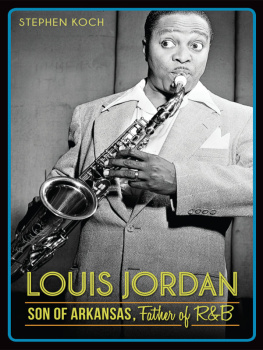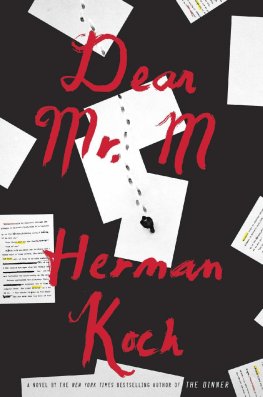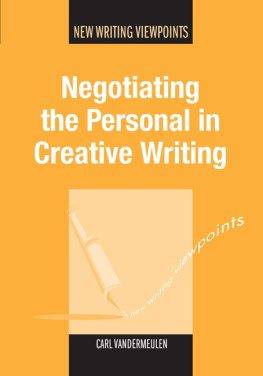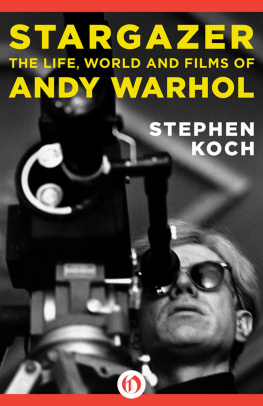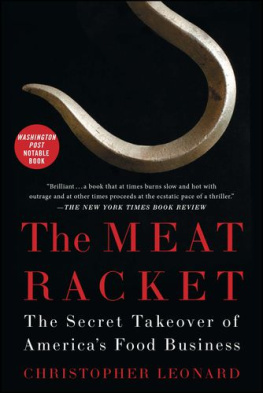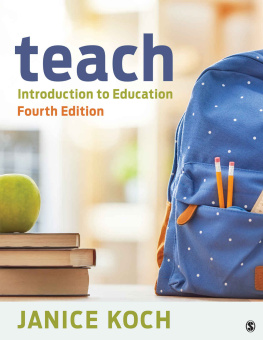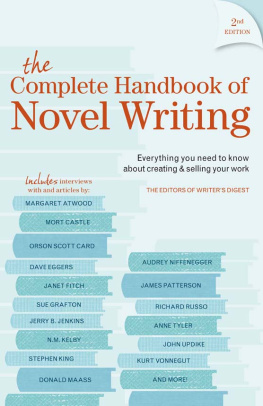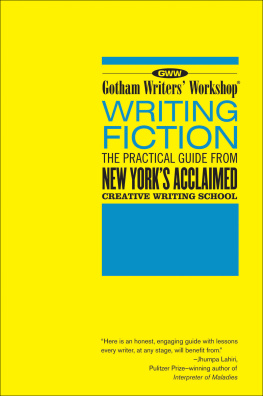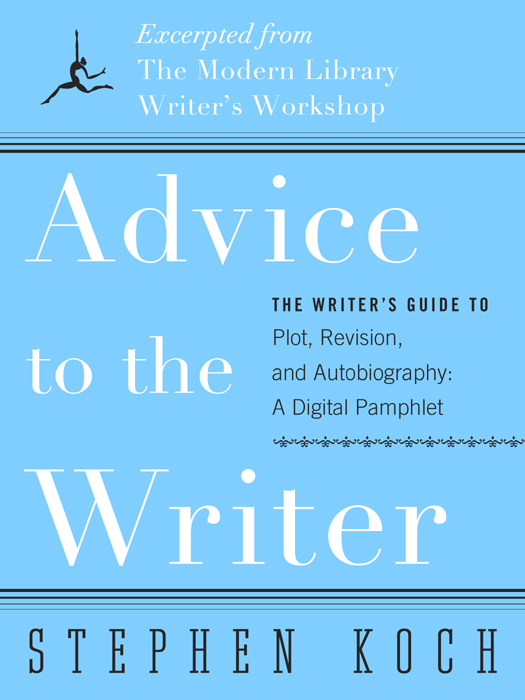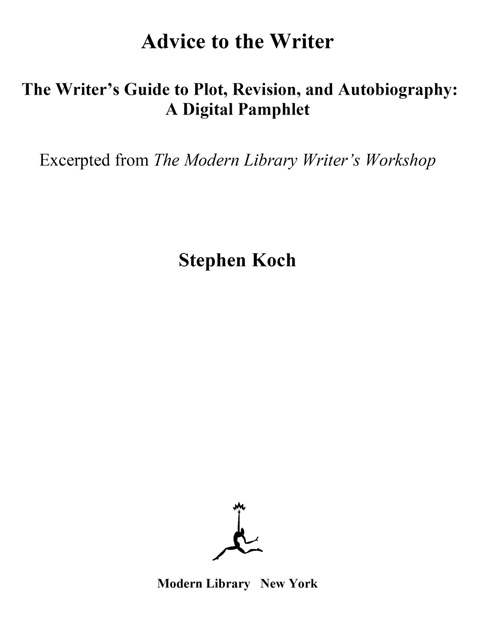Stephen Koch - Advice to the Writer: The Writers Guide to Plot, Revision, and Autobiography: A Digital Pamphlet: Excerpted from The Modern Librarys Writers Workshop
Here you can read online Stephen Koch - Advice to the Writer: The Writers Guide to Plot, Revision, and Autobiography: A Digital Pamphlet: Excerpted from The Modern Librarys Writers Workshop full text of the book (entire story) in english for free. Download pdf and epub, get meaning, cover and reviews about this ebook. year: 2014, publisher: Random House Publishing Group, genre: Detective and thriller. Description of the work, (preface) as well as reviews are available. Best literature library LitArk.com created for fans of good reading and offers a wide selection of genres:
Romance novel
Science fiction
Adventure
Detective
Science
History
Home and family
Prose
Art
Politics
Computer
Non-fiction
Religion
Business
Children
Humor
Choose a favorite category and find really read worthwhile books. Enjoy immersion in the world of imagination, feel the emotions of the characters or learn something new for yourself, make an fascinating discovery.

- Book:Advice to the Writer: The Writers Guide to Plot, Revision, and Autobiography: A Digital Pamphlet: Excerpted from The Modern Librarys Writers Workshop
- Author:
- Publisher:Random House Publishing Group
- Genre:
- Year:2014
- Rating:3 / 5
- Favourites:Add to favourites
- Your mark:
Advice to the Writer: The Writers Guide to Plot, Revision, and Autobiography: A Digital Pamphlet: Excerpted from The Modern Librarys Writers Workshop: summary, description and annotation
We offer to read an annotation, description, summary or preface (depends on what the author of the book "Advice to the Writer: The Writers Guide to Plot, Revision, and Autobiography: A Digital Pamphlet: Excerpted from The Modern Librarys Writers Workshop" wrote himself). If you haven't found the necessary information about the book — write in the comments, we will try to find it.
With nearly thirty years of teaching experience, Stephen Koch has earned a reputation as an astute and benevolent mentor; and with Advice to the Writer, his lucid observations and commonsense techniques have never been more accessible. Here Koch dispenses sound guidance for those moments when the muse needs a little help finding her way: in Shaping the Story, he untangles plot; in Working and Reworking, he explains the most teachable (yet least often taught) of all writerly skills: revision; and in The Story of the Self, he delves into autobiography. Featuring handpicked commentary from some of our greatest authors, Advice to the Writer is a unique introduction to this maddening and intoxicating pursuit.
Praise for Stephen Kochs The Modern Library Writers Workshop
An extraordinarily comprehensive and practical work by a master craftsman and a master analyst of the craft.Madison Smartt Bell, author of All Souls Rising and Anything Goes
Stephen Koch was my teacher long ago. Now he is everyones teacher, indelibly. This is a book not just for the beginning writer but for every writer.Martha McPhee, author of the National Book Award nominee Gorgeous Lies
The Modern Library Writers Workshop is a treasure trove of wisdom, both immensely practical and philosophical, entertaining and thought-provoking. Koch takes us inside the writing process, and it is impossible not to emerge transformed.Joanna Hershon, author of Swimming
Stephen Koch: author's other books
Who wrote Advice to the Writer: The Writers Guide to Plot, Revision, and Autobiography: A Digital Pamphlet: Excerpted from The Modern Librarys Writers Workshop? Find out the surname, the name of the author of the book and a list of all author's works by series.

